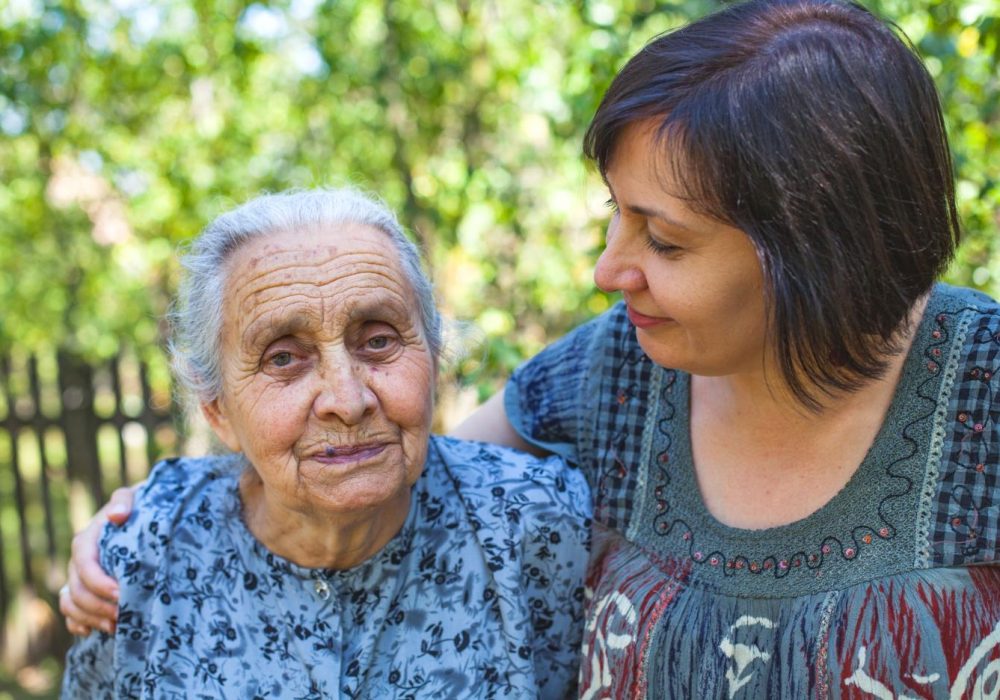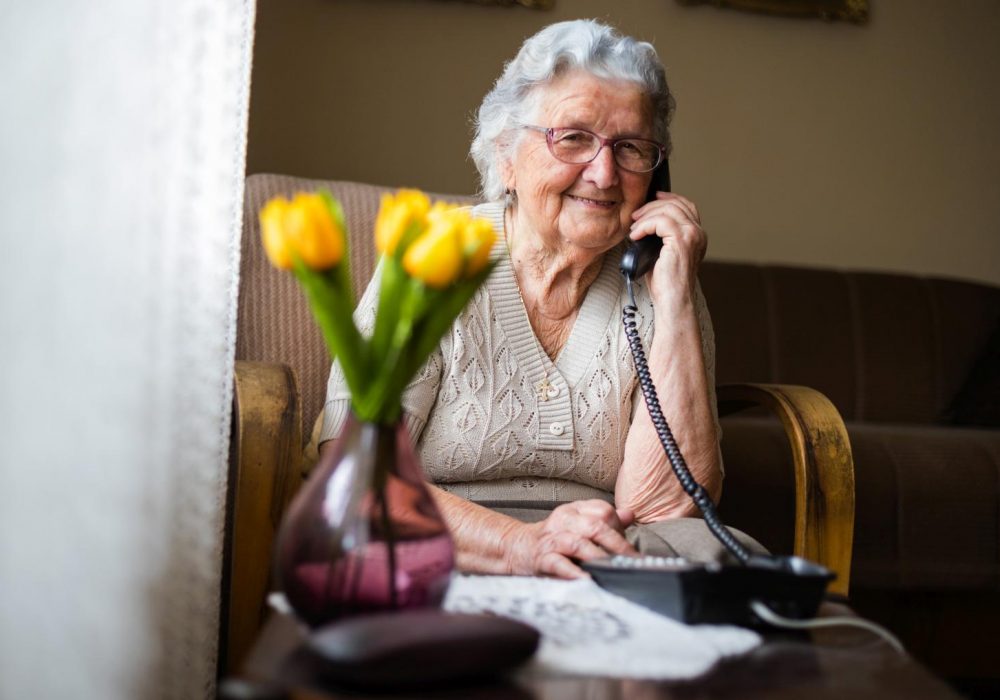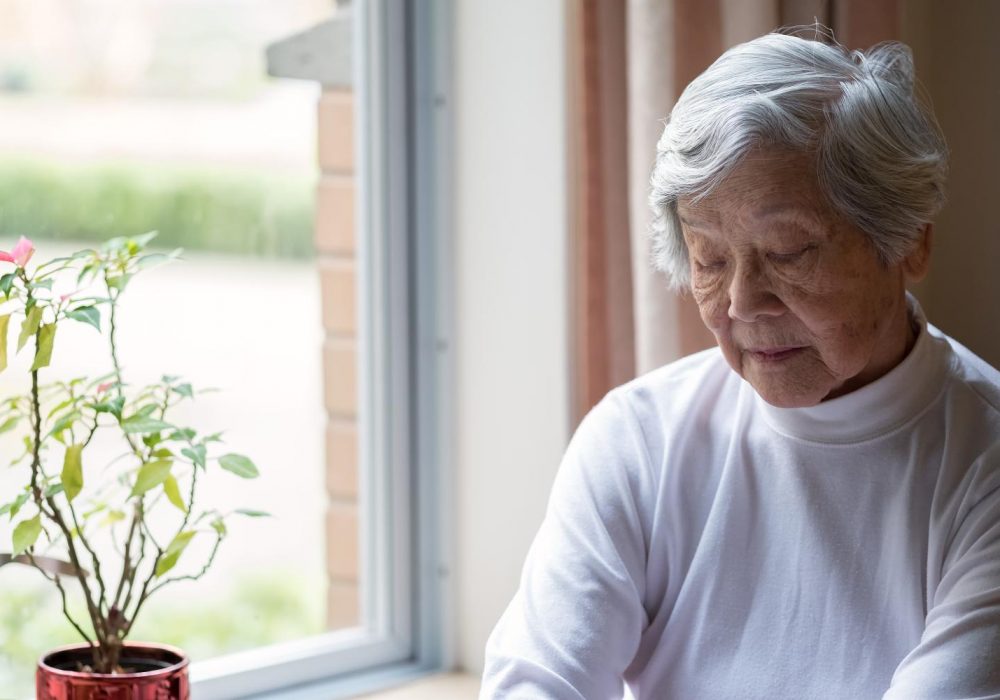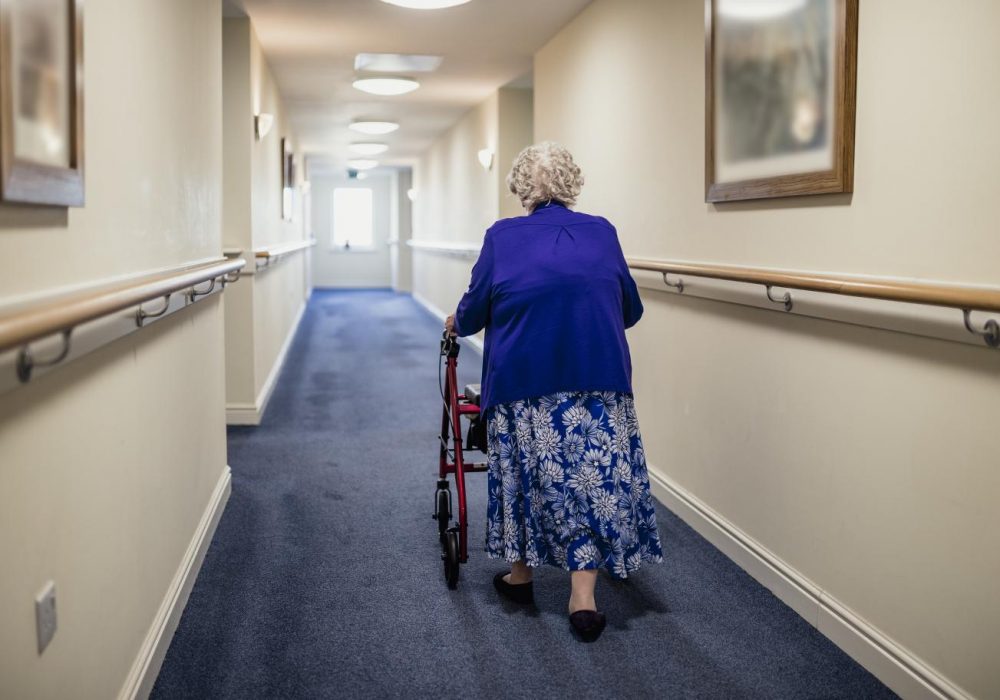Making a meaningful difference in the lives of older adults and family/friend caregivers
by bridging research, policies, and practice.
How are we making a difference?

By providing evidence on the dire state of caregiving in Canada
- We compared 2012 and 2018 national data on caregiving and found that overall, the workload has intensified, and caregiver well-being has declined.
By raising awareness about the experiences of 5.2 million Canadians who combine paid work and care work and identifying workplace supports that make a difference
- We analyzed the most recent national survey of caregivers and co-created with partners a series of six infographics about family caregivers who juggle paid work and care work responsibilities.
-
- Who are employed caregivers in Canada? in English and French on Qui sont les aidants en emploi au Canada, 2022
- How does caregiving impact paid work for employed women and men? in English and French on Quelles répercussions les soins ont-ils sur le travail rémunéré des femmes et des hommes?, 2023
- Who are employed caregivers at greatest risk of poor work-life balance and job insecurity in English and French on Quels aidants en emploi s’exposent le plus à la précarité d’emploi et à des difficultés à concilier leur vie profess, 2023
- What are the availability and impact of flexible work arrangements for employed caregivers? in English and French on Les aidants en emploi ont-ils accès à des modalités de travail flexibles et quels sont les bienfaits de telles modalités?, 2023
- Supporting employed caregivers makes good business sense in English and French on Soutenir les aidants en emploi constitue un investissement plutôt rentable, 2023
- How much do employed caregivers contribute to the Canadian economy? in English and French on Quelle est la contribution des aidants en emploi à l’économie canadienne?, 2023
Employed caregivers in Canada infographic series compilation, in English and French on Les aidants en emploi au Canada, 2023
- We created two more infographics on employed family caregivers to round out our series:
- We hosted a panel conversation on Balancing Work and Care: Strategies for Meaningful Employment for National Caregivers Day. Learn about the challenges of balancing paid work and unpaid caregiving responsibilities, the marketable skills that caregivers acquire as part of their care journey, and how employers can benefit from and better support caregivers in the workplace through technology, policies, and practices by watching the catalytic conversation on AGE-WELL’s YouTube channel here: https://www.youtube.com/watch?v=mRzJtv-43sE
- Read Dr. Janet Fast’s personal story about confronting the intersection of paid work and care work and how one pivotal question can shape a career.
By estimating the economic value of family care work in Canada and conceptualizing Canada’s Care Economy
- We estimated the annual economic value of family care work at between $97.1 and $112.7 billion. Curious? For more information check out these resources: our publication in the Journal of Family and Economic Issues here https://link.springer.com/article/10.1007/s10834-023-09899-8, our 2-page research snapshot The Value and Distribution of Family Caregiving in Canada, our 2-page infographic Value of Family Caregiving in Canada, or our article in The Conversation Canada: Family Day imagery neglects family caregivers’ care work; it needs to be valued.
- We collaborated with Statistics Canada colleagues to conceptualize and measure Canada’s Care Economy, broadly defined as providing paid and unpaid care work. The care economy is a highly relevant issue for Canadian society and the economy, especially given the pressures of the COVID-19 pandemic on social care and healthcare systems.
By debunking public misconceptions about caregiving
- Curious about what is a caregiver or caregiver burden? Check out these professional videos co-created with Caregivers Alberta:
- We moved beyond ‘snapshots’ to conceptualize and measure life courses of family care. “To most people, caregiving means looking after ailing relatives in their final years. But the reality is much different, with the actual workload lasting more than 30 years for some, according to RAPP research. The study, the first of its kind to gauge caregiving across a person’s lifetime, debunks the myth that looking after an ailing loved one is a short, one-off experience. ” Get the full story here.
- We showed that even young people are caregivers in the infographic Young caregivers (age 15-19 years) in Canada. Nearly half of these teenage caregivers care for their grandparents. When asked when they first started providing care, more than 40% said they were less than 15, growing up while caring for grandparents, parents, or friends and neighbours. Stories about young caregivers in Canada whose health, social development, education, and job prospects are challenged appeared in several news outlets: CBC News, Folio, Edmonton Journal, Edmonton Sun, Calgary Sun, and Calgary Herald.
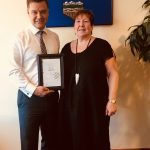
By using evidence to inform public policy
- Dr. Janet Fast assisted Mr. Jeneroux as an Alberta MLA in making a case for his private member’s bill (203) to introduce a Compassionate Care Leave for employees working in provincially regulated industries/occupations. It passed with all-party support, a rare thing for a private member’s bill! He has since moved on to federal politics, where Dr. Fast collaborated with Mr. Jeneroux on his federal private members bill C-220 to amend the Canada Labour Code to extend the period of bereavement leave and expand eligibility for those who are on Compassionate Care Leave or Critical Illness Leave to help thousands of grieving Canadian families. We are delighted that Bill C-220 received Royal Assent and is now law!
- Dr. Janet Fast collaborated with Caregivers Alberta and the Alberta Caregiver-Focused Coalition to respond to the Government of Alberta’s invitation from stakeholders to provide input to the review of the Continuing Care Act. Our submission uses research evidence to advocate for better policies that sustain family caregivers’ well-being.
By integrating research and teaching
 Dr. Megan Strickfaden was awarded a McCalla Professor Award (2020-2022). McCalla Professors are outstanding academics who contribute significantly to integrating teaching, research, and educational leadership. As a McCalla Professor, Dr. Strickfaden undertook a project that combined research and education to advance new knowledge, design practice, and student learning, advancing work on a three-part outdoor winter clothing system for seated clients with disabilities. She integrated opportunities to develop a marketing plan, visual identity, and promotional materials into HECOL 250 and HECOL 469/569 students’ learning experiences.
Dr. Megan Strickfaden was awarded a McCalla Professor Award (2020-2022). McCalla Professors are outstanding academics who contribute significantly to integrating teaching, research, and educational leadership. As a McCalla Professor, Dr. Strickfaden undertook a project that combined research and education to advance new knowledge, design practice, and student learning, advancing work on a three-part outdoor winter clothing system for seated clients with disabilities. She integrated opportunities to develop a marketing plan, visual identity, and promotional materials into HECOL 250 and HECOL 469/569 students’ learning experiences.
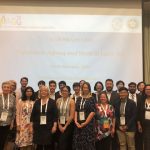
By building capacity among early career scholars around the globe
Dr. Norah Keating led the GSIA Master Class on older workers at the IAGG Asia Oceania Congress in Taipei (2019) with early career scholars from Taiwan, Hong Kong, Sri Lanka, Thailand, Japan, New Zealand, and Australia. Participants learned from senior international scholars how aging research in general, and their own research in particular, contributes to varying portrayals of older workers.
About Us
Professors Dr. Janet Fast and Dr. Norah Keating lead Research on Aging, Policies, and Practice (RAPP) from the Department of Human Ecology at the University of Alberta. We are committed to making a meaningful difference in the lives of older adults and their families by bridging research, policies, and practice. Drawing on Human Ecology Theory, we consider the environments in which people live, including family, work, community, and policy contexts. We focus on:
- family caregiving across the life course and its cumulative impact on caregivers’ health, wealth, and well-being,
- older adults’ contributions to and social inclusion in work and society,
- care and support of older adults and adults with chronic illness or disabilities, including creating livable spaces and age-friendly communities that enhance well-being.
We collaborate with researchers at other universities worldwide and partner with government and community organizations in conducting our research, providing an enriching milieu for graduate student education. We are one of a few International Association on Gerontology and Geriatrics (IAGG) Collaborating Centres.



